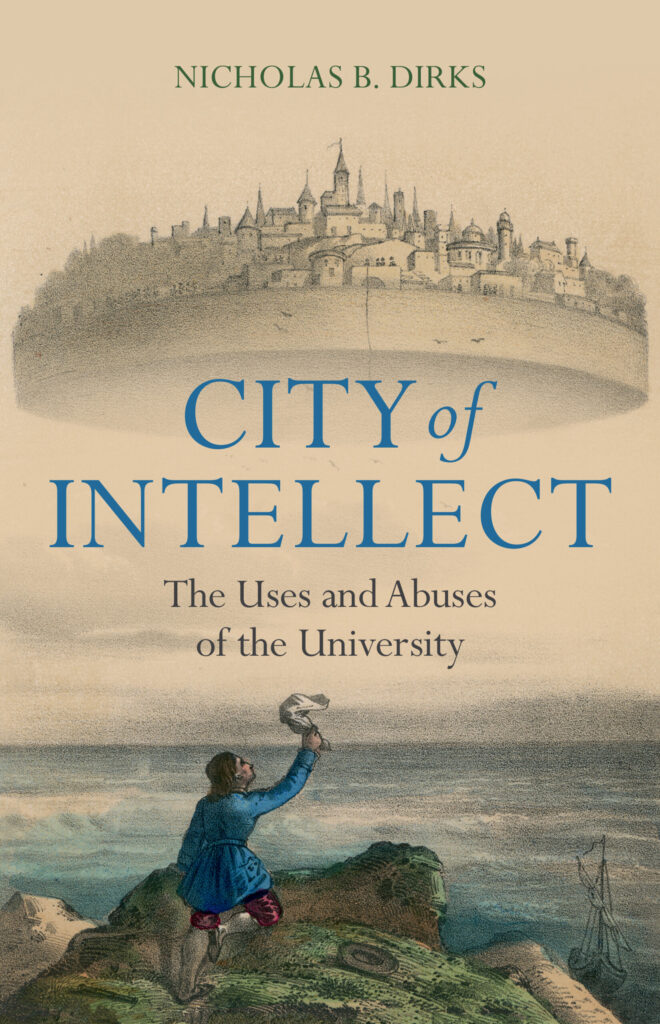Academy President’s New Book Explores Contemporary Challenges in Higher Education
The book details Nicholas B. Dirks’ years in leadership roles at Columbia and Berkeley during an era of vast changes in the culture of academia.
Published February 01, 2024
By Nick Fetty
Nicholas B. Dirks, President and CEO of The New York Academy of Sciences, reflects on the challenges he encountered and the lessons he learned during his long career in university leadership, from being chair of the Anthropology department at Columbia, to his time as EVP and Dean of the Faculty of Arts and Sciences also at Columbia, and then as chancellor of the University of California, Berkeley, in a newly published book.
City of Intellect: The Uses and Abuses of the University was released in the United States by Cambridge University Press on Feb. 1. The book, described as “part autobiography, part practical manifesto,” details Dirks’ years in leadership roles at Columbia and Berkeley during an era of vast changes in the culture of academia.
Assessing Challenges in Higher Education
A distinguished historian and anthropologist and an accomplished academic administrator, Dirks offers a frank assessment of some of the challenges facing higher education. In a recent TIME Ideas column, Dirks wrote “There are far too many examples of the failure of universities over the past decade to defend academic freedom when it goes against conventional wisdom on campus.” The attempted canceling of provocative guest speakers such as Milo Yiannopoulos, Bill Maher, and Ann Coulter are several examples that occurred during Dirks’ stint as the leader of the Berkeley campus.
While he acknowledges the need for change at the institutional level, however, he has also expressed concerns about external forces and attacks on the university that are exerting increasing pressure “[on] the overall climate for faculty governance, for academic freedom and for fundamental issues that…are definitely under…threat right at the moment.”
Reinventing Universities
In addition to leading The New York Academy of Sciences, a position he has held since 2020, Dirks continues to serve as a professor of history in the Graduate School at UC Berkeley and is the Franz Boas Professor Emeritus of Anthropology at Columbia. Dirks has published major works on the history of the state in early modern South Asia, the colonial history of the caste system, the significance of the Indian empire for modern Britain, on social and cultural theory, and on debates in historiography. He has been a lifelong advocate of the liberal arts, interdisciplinary studies, and India. In the face of multiple challenges and changes, however, Dirks asserts that universities must “reinvent themselves” to remain relevant.
“[W]e also need to really rethink some of the legitimate concerns people have about how we [in higher education] conduct ourselves at every level—cost, administrative bloat, disciplinary silos, relevance, enacting academic freedom and free speech—across the board,” Dirks said in an interview with Inside Higher Ed. “All of those things have to be done in order to regain [public] trust.”
And yet, his new book extends remarks he made some years ago, that “The time has come to defend the university vigorously, even as we insist on seeking to open it up further: to new ideas, to even more vigorous debate, to more students who have never had the opportunity for advanced education, to engagement with the world, and to the public more generally for whom the idea that college is a public good needs stressing and demonstrating today more than ever.”

